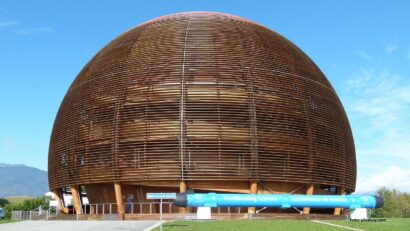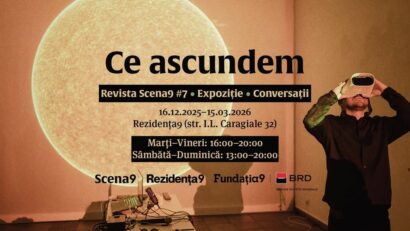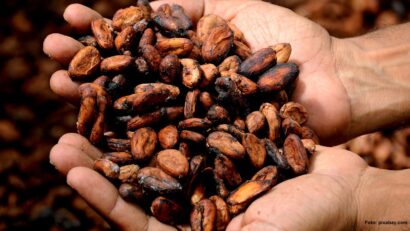The Confessions of a Coffee Maker
For more than 40 years, Gheorghe Florescu has been one of the best-known sellers and makers of coffee in Bucharest.

România Internațional, 11.08.2013, 13:42
For more than 40 years, Gheorghe Florescu has been one of the best-known sellers and makers of coffee in Bucharest. To him, coffee is an elixir of intelligence and love, which prolongs life and clears the mind. “I think the moment you have your first cup of coffee is the best moment of the day”, he told us when we met in his coffee shop on a grey March morning. The aroma of roasting coffee imbued everything around. This hot, unique smell, capable of waking you up from the deepest of slumbers, has been with Gheorghe Florescu since childhood:
‘My first contact with coffee was when I was 8. I was in the courtyard of my godfather’s house, Gheorghe Georgescu. Sharing that courtyard was an Armenian family, who owned a coffee shop with the entrance on the street. From this family came one of the most famous Armenians in the world, Baruir Nersesian, a famous coffee maker who won the heart of New York with his fabulous coffee. A lot of Armenian coffee makers were around when I was a kid. There were at least 40 coffee makers in Bucharest after the war, and between the wars there must have been 100.’
But what does it mean, being a coffer maker?
“A coffee maker is a coffee taster and maker, an expert on how coffee is brewed and served. You have to know what you drink; there are differences between tyoes of coffee. There is better and worse coffee, special coffee and heavenly coffee.”
Gheorghe Florescu learned the craft of preparing coffee from a famous Armenian coffee maker, Avedis Carabelaian, one of the few left in Bucharest at the end of the 1960s. The master left the title to him, leaving him in charge of the coffee and delicatessen shop at 10 Hristo Botev Street, where the clients were intellectuals, actors or doctors, but also officers in the police or Securitate, and other people in privileged government positions. Avedis had left him not just the management of the place, but also his wide network of customers and the art of keeping them loyal:
‘I was a record holder in Bucharest already, I was the best known, I had the best coffee, the kind of combination we could make back then. Now we have the entire world at our disposal. Back then we had coffee from Colombia, Guatemala, Salvador, Nicaragua, and even Mexico. That is what I was blending. Back then there were a lot of greedy people selling bad coffee in total disregard of the consumer. Mr. Carabelaian told me: ‘As long as you roast your coffee what I taught you, you will never be short of customers’. And my customers have remained faithful to me to this day.”
Florescu, ‘the little Armenian’, as he was known, is also a great storyteller, with great stories about life during communism. He was one of the people who was keeping the flow of products which nowadays seem banal, but which back then were a genuine form of currency: coffee, fine spirits, western cigarettes, and any other imported products — everything the market was lacking and was considered forbidden pleasures for ordinary people and only reserved for the elite. He mastered the mechanisms that kept that society running: knowing the right people, complicity, and bribery. His history, and that of his coffee shop, is the history of Romania between the 1960s and the 1980s, written by people who are still around. In the mid-1980s, his business caught up with him and he was sent to jail. He was pardoned in 1988, and resumed his craft after 1990. Urged by a few famous clients, with a decisive contribution from his daughter, Vali, he wrote “The Confessions of a Coffee Maker”, a memoir of times which many of us would rather not remember:
“My daughter wanted to make a movie, and told me ‘Daddy, sit down and write’. I wrote ‘The Confessions of a Coffee Maker’ for her, as documentary material for the movie. I wanted it to be clear, precise, without errors, because then you attract a lot of criticism. However, there was no criticism, not even from people I wasn’t exactly kind with in the book, and who lined up for a signed copy. Finally, after they fell from power, somebody was paying some attention to them. In 2009 we sold 20,000 copies to the Romanians abroad alone. The diaspora is eager to know what happened, especially those who left the country before Ceausescu came to power in 1965, they want to know what happened. This book gives a pretty clear picture of what was happening back then.’
The book was launched on November 22nd, 2008. With the money from the sales, Gheorghe Florescu told us, he managed to fulfil a lifelong dream: refurbishing his coffee store:
“Right now we have a family business with a few employees and three branches, and we even opened a café. I don’t think you can find better coffee anywhere in the world.”
Today, Gheorghe Florescu roasts his coffee in a small shop in the centre of Bucharest. He brings to Romania exotic varieties, as well as organic coffee. Good natured, courteous, the keeper of Carabelian’s recipes is always glad to have guests, even though not all those who step in buy his coffee or the fine chocolate he sells.






























